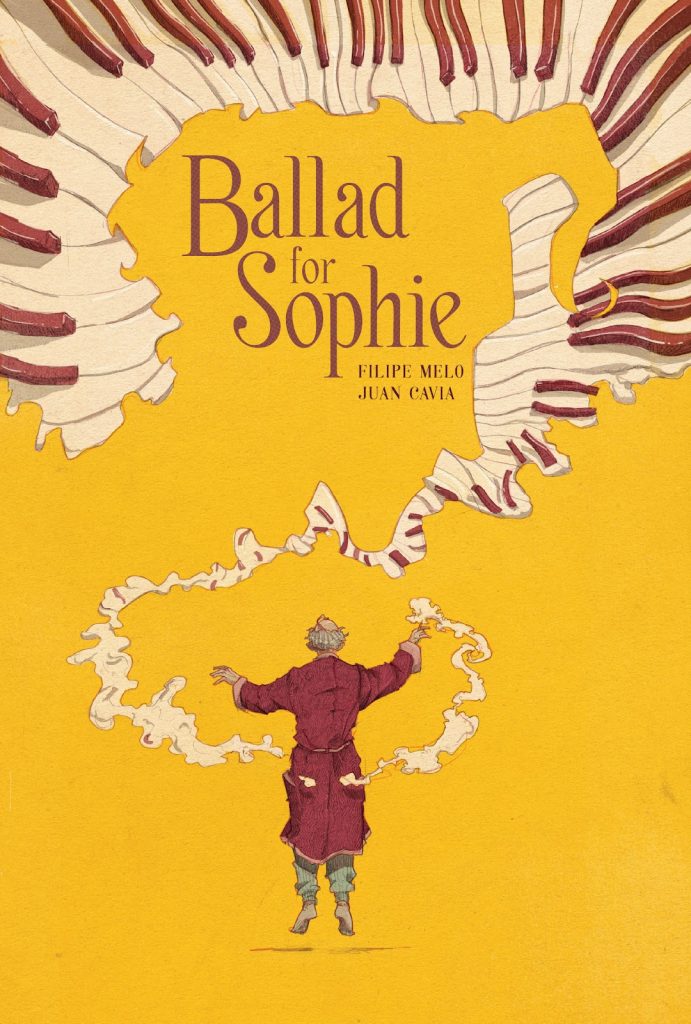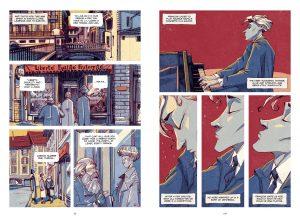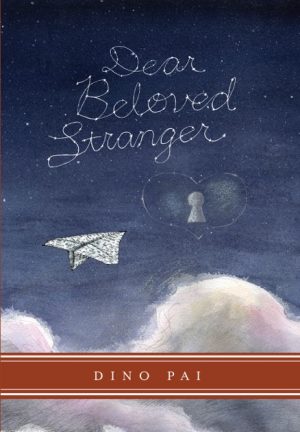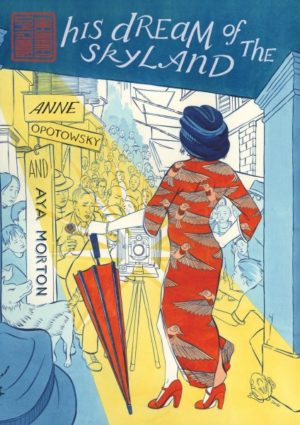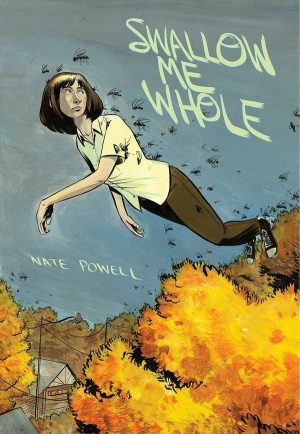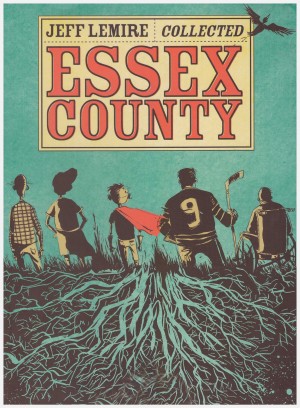Review by Ian Keogh
In 1997 when interning for a newspaper Adeline Jourdain arranges an interview with renowned pianist Julien Dubois, then a crotchety, dying old man who never leaves his home and guards his privacy. Initially rebuffed, Adeline’s persistence pays off and she learns a fulfilling story of rivalry, jealousy and stubborn pride that begins in 1933. The talented Dubois is well coached when entered for a talent competition, but although very good, he’s not exceptional, and late entrant François Samson is, a child prodigy despite coming from a poor background. He should have won the competition, but instead Dubois did, but under dubious circumstances as we later learn.
Filipe Melo’s story moves forward to the Nazi invasion of France, where Dubois finds a new hatred, as talent on the piano no longer seems of value. That’s not the case, and among other themes Melo explores is the power of music to lift the spirits even in the darkest of times. Dubois no longer plays as a concert pianist, but an entertainer, his talent is apparent to all, and well chosen moments of magical realism elevate a sweeping recollection. Melo manages to involve big themes while focussing largely on Dubois, so also providing a quiet intimacy.
Some of the most intimate moments concern the blissful almost automatic state an accomplished pianist achieves when gently playing their fingers over a keyboard, and Juan Cavia captures this feeling through pose and expression. It’s no substitute for actually hearing the music, but there’s an undeniable power to Cavia’s drawings of people lost in music. Transmitting visual personality is a considerable strength and well-defined people are continually introduced in Cavia’s appealing cartoon realism. He occasionally steps beyond, surprising with Pop-Art illustrations, and plenty of readers are going to be shocked by a revelation that Cavia’s never concealed, but not drawn attention to either.
After a memorable introduction Adeline becomes largely the sounding board as the recollections flow, but Melo compensates with the complexity applied to Dubois over various stages of his life. Although his actual meetings with Samson are few, his steadfastly honourable personality and the knowledge that he’s the better pianist gnaws at Dubois despite his own acclaim. The seething emotions so completely capture the attention to the point where Dubois takes over and it’s forgotten that a Sophie is mentioned in the title.
Ballad for Sophie is an emotionally complex work nominated for several awards. It’s a rare graphic novel that addresses subjects such as famous creative people actually dissatisfied with their limitations and seeing a freedom or purity in other practitioners of their art. Does Geoff Johns envy Chris Ware? Other themes include concealment and repression, with Melo and Cavia allowing space for the story to breathe, which differs from padding. Emotional reaction and contemplation are important, and given due accord as Ballad for Sophie works adroitly to a sentimental ending. Some readers may be ahead of Melo, but many won’t be, and anyway it’s not the point. Rich, alluring, and beguiling, Ballad for Sophie touches chords within. It’s dark in places, but never loses sight of humanity, the emotions symphonically balanced.
Melo is himself an accomplished jazz pianist and composer, accounting for the musical background being so convincing, and as gift to musical readers he provides the score for the title theme. You don’t get that from Johns or Ware!
